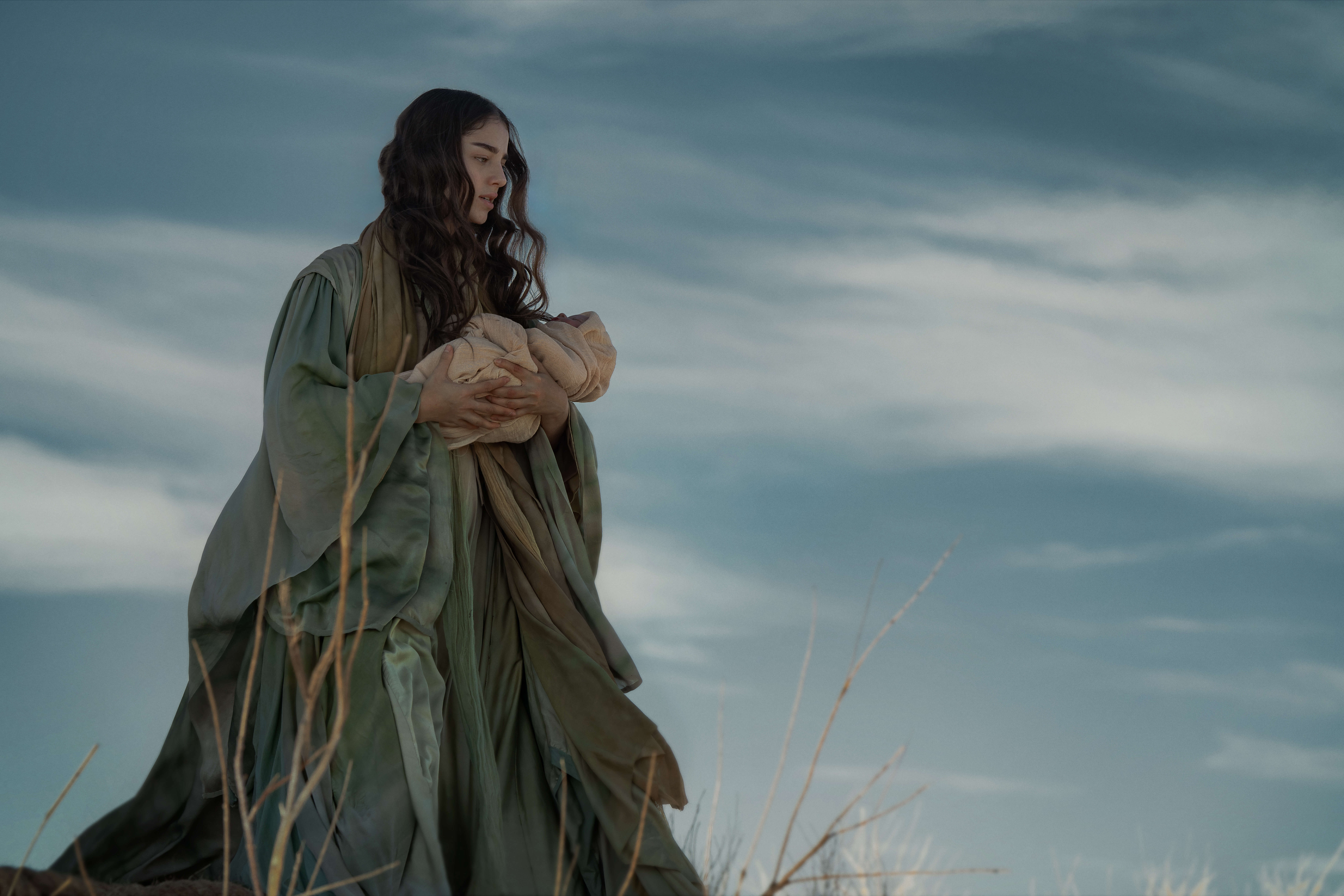An Israeli woman in playing Mary in a Netflix movie — and the outcry is getting weird
Debates over whether Israelis or Palestinians are racially closer to Mary feel kind of like eugenics

Noa Cohen as Mary. Courtesy of Netflix
It should surprise no one that Netflix’s new movie Mary, about the mother of Jesus, is controversial. Catholics are angry that it violates doctrine by portraying her relationship with Joseph as romantic instead of chaste. Conservative Christians are simply mad that it’s being made by Netflix, which they consider ungodly. And still others are angry because Noa Cohen, the actress playing Mary, is Israeli.
“A film about a Palestinian woman played by actors from the settler state that is currently mass slaughtering Palestinian women,” reads one characteristic tweet. “Oh the disgusting audacity.”
Of course, according to doctrine from all three Abrahamic religions, Mary was a Jewish woman, living in what was then officially called Judea, part of the Roman Empire. No one disputes that she, like Cohen, was Jewish.
But whether or not it would be accurate to call Mary a Palestinian, regardless of her religion, is complicated. There was a biblical region in the area called Philistia, but it likely was located where Gaza is today, and did not encompass the inland area where Bethlehem, Nazareth and Jerusalem lie. Nevertheless, some scholars argue that the term “Palestine” was a common way to refer to the broader Levantine region as early as the Bronze Age.
It was only in the early 2nd century, long after Mary’s death, that Romans began to refer to the entire region as “Syria Palestina,” and the area where Mary and Jesus lived gained an official designation as Palestine, at least that we have records of. All of that makes it unclear what Mary would have called herself — and even then, we have little idea whether Mary would have rooted her identity in her religion, the village she lived in, or some other category.
There has long been a trend online of calling Jesus and Mary Palestinian, often as part of raising awareness about Palestinians’ plight, and today, most Christians in the region do consider themselves Palestinian. It’s valid to note the symbolism of casting an Israeli actress in Mary’s role given today’s geopolitics, or wish that a Palestinian had been cast instead — though then there might have been a reverse outcry about “Jewface.”
Indeed, the film’s director, DJ Caruso, told Entertainment Weekly that “it was important to us that Mary, along with most of our primary cast, be selected from Israel to ensure authenticity.” But what kind of authenticity does he mean?
If the concern about Mary’s casting — whether she must be Israeli or whether she must be Palestinian — is achieving some sort of ethnic accuracy, well, that begins to veer uncomfortably close to race science. The Levant in Mary’s time was largely Aramaic- and Greek-speaking, with little influence from the Arabian peninsula; Arab conquest of the Levant did not occur until the 7th century. Still, plenty of other empires — Babylonian, Persian, Assyrian, Roman — did conquer the area at various points in history, and mix with the local population.
That means it’s hard to guess exactly what shade residents’ skin or eyes would have been, or the shape of their noses. And who would want to? Arguing over whether Palestinian Christians or Jewish Israelis are racially closer to Mary requires us to define identity in a way we, as a society, have thankfully largely moved away from.
And, like the ethnic makeup of the area, the religious practices have changed enormously since antiquity as well. Arguments over who is most “accurate” as Mary don’t map well onto today’s realities.
But if you must open that Pandora’s box, what does seem relatively clear is that the residents of the area were not Western Europeans with British accents. So maybe let’s start by getting mad that Anthony Hopkins was cast as King Herod.
A message from our CEO & publisher Rachel Fishman Feddersen
I hope you appreciated this article. Before you go, I’d like to ask you to please support the Forward’s award-winning, nonprofit journalism during this critical time.
At a time when other newsrooms are closing or cutting back, the Forward has removed its paywall and invested additional resources to report on the ground from Israel and around the U.S. on the impact of the war, rising antisemitism and polarized discourse.
Readers like you make it all possible. Support our work by becoming a Forward Member and connect with our journalism and your community.
— Rachel Fishman Feddersen, Publisher and CEO